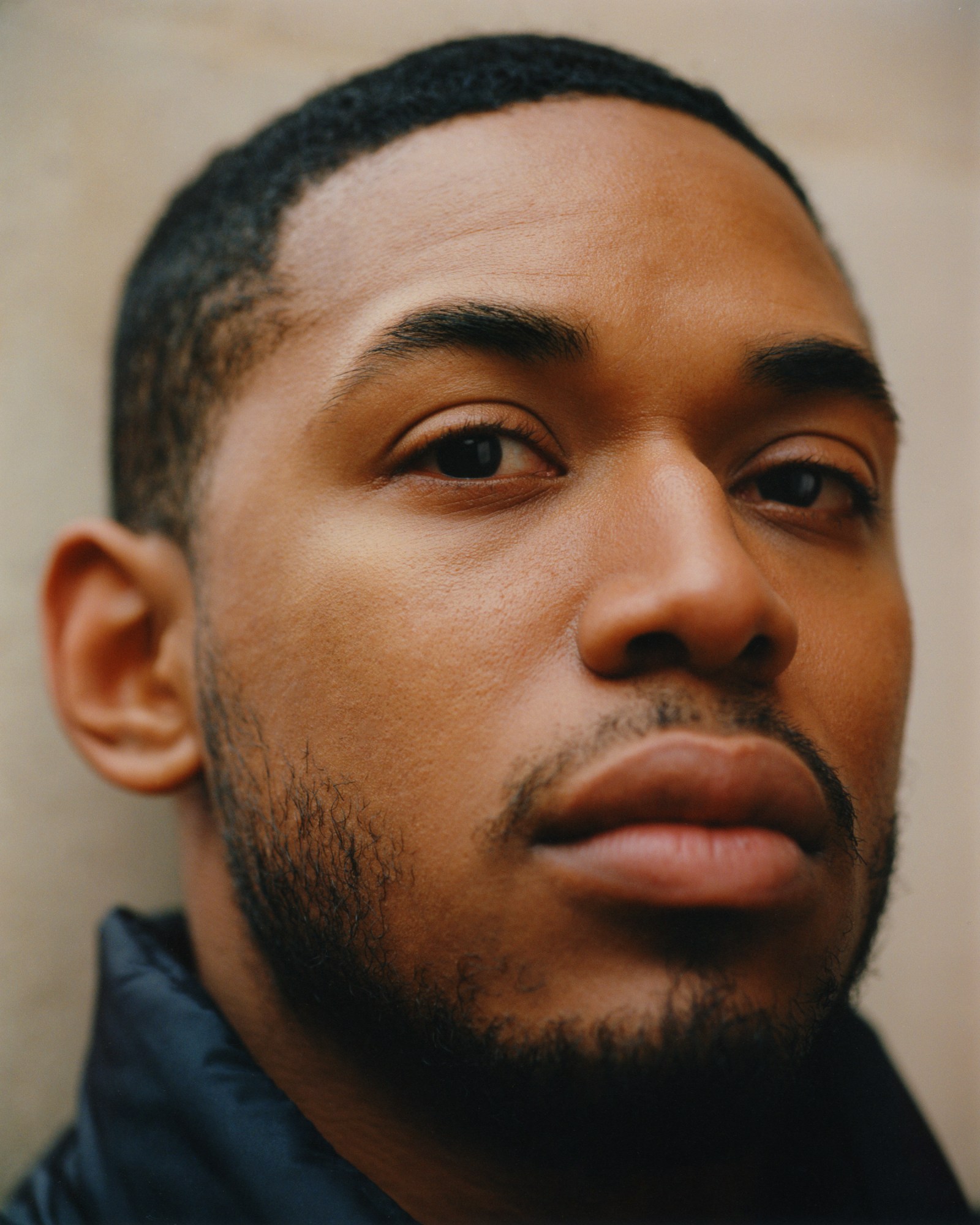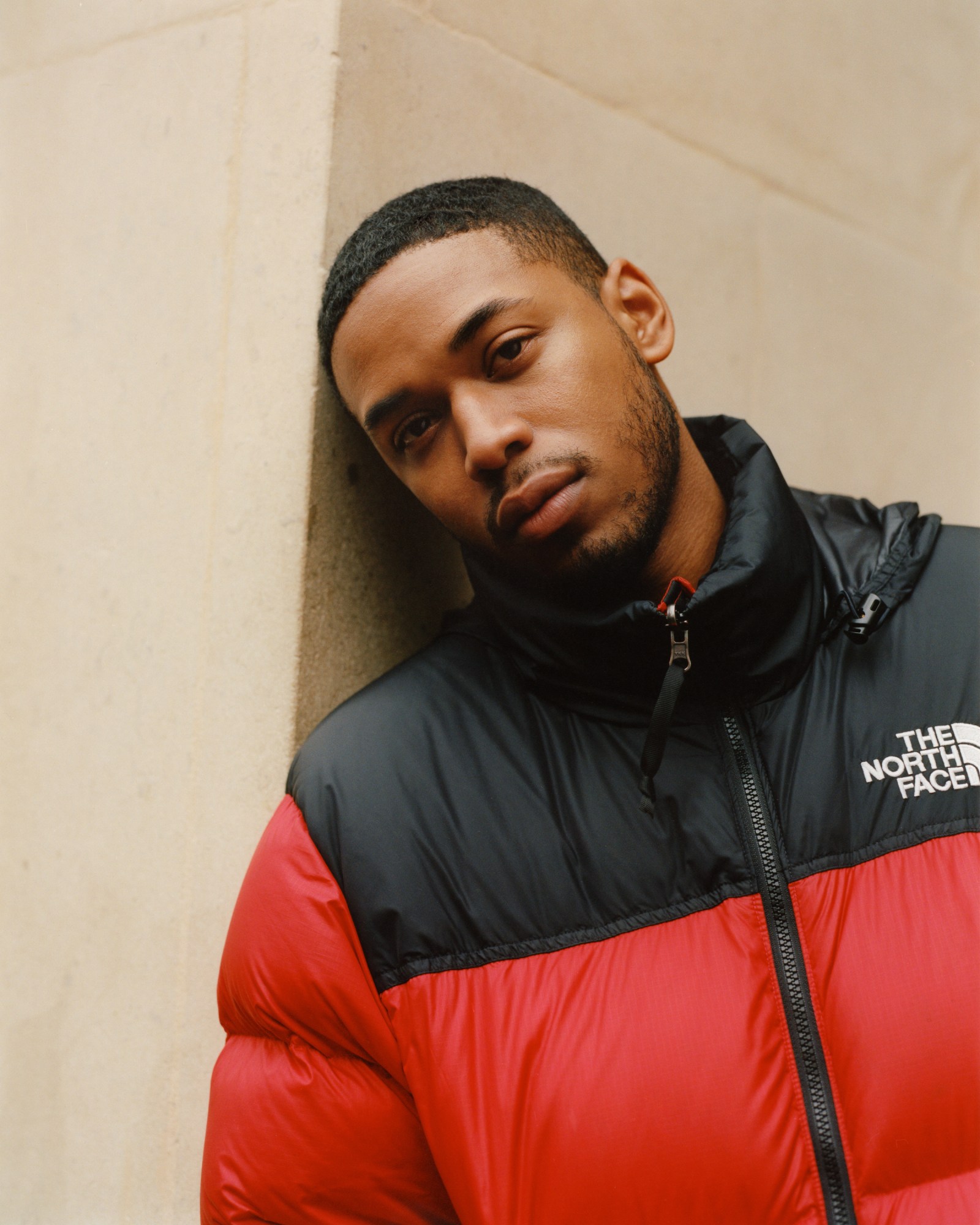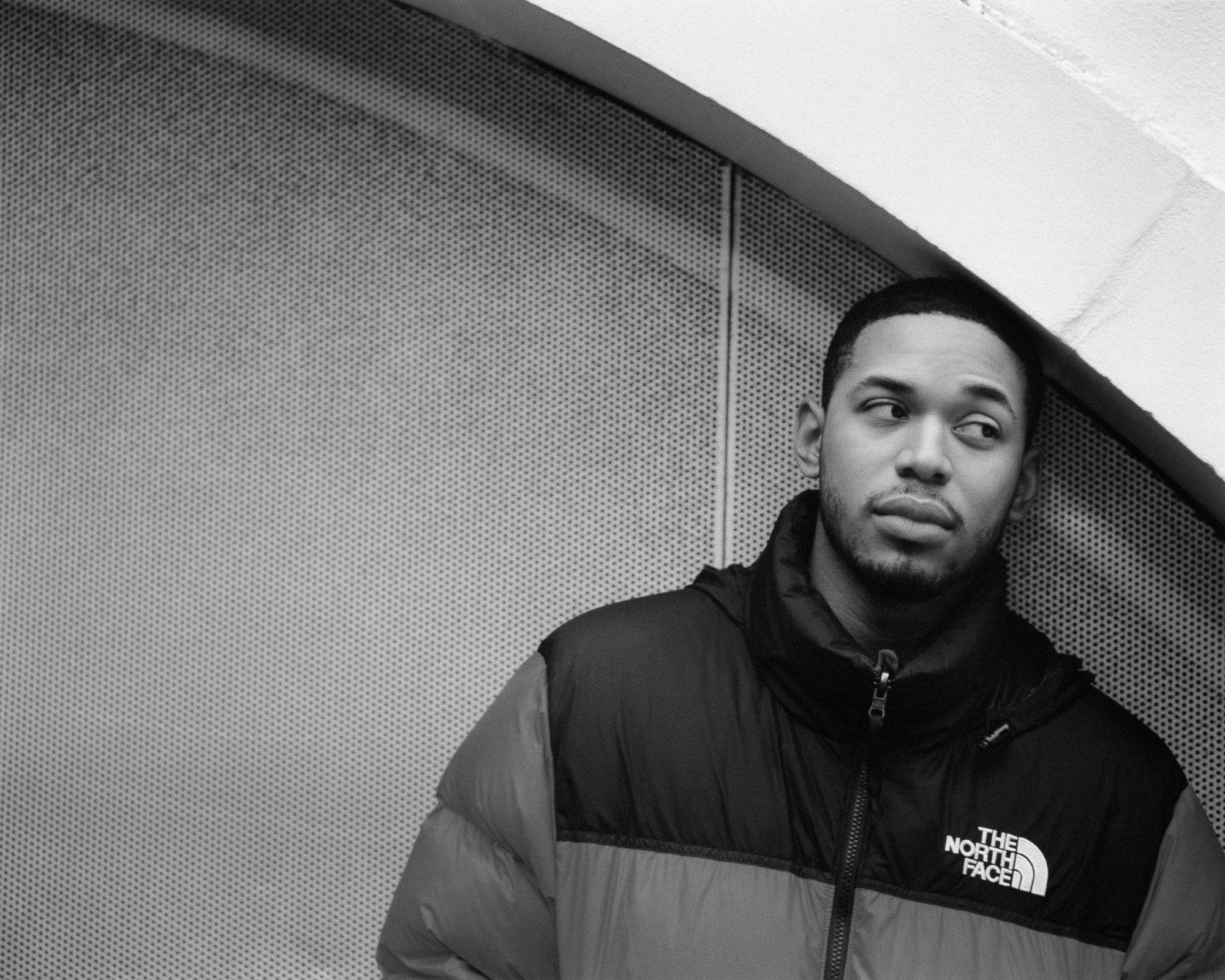Sat in an almost furniture-less hotel room in Soho, looking out over an overcast London skyline, Kelvin Harrison Jr. feels like the antithesis of his somber surroundings. Energetic, engaged and keen to go deep inside the psyche of his latest role down to the most granular detail, he takes his time and answers every question thoughtfully.
The film in question is Waves, the Frank Ocean-soundtracked, Alexa Demie-starring, A24 pièce de resistance you’ve likely seen posters and trailers splashed across Instagram for over the last couple of months. The story of a family hurtling full-speed towards (and then ever so slowly away from) catastrophe, its tension reaches its crescendo at the centre, providing a two-part examination of the way one family deals with trauma.
The film’s themes of pressure, expectation and frustration — the ones that guide its eventual tragedy — resonate with Kelvin. He was never a high school wrestler like his character Tyler, nor was he an actor who grew up between film sets and press junkets. Instead, Kelvin was born and raised in New Orleans, the son of two accomplished musicians. It wasn’t until his late teens that he moved to Los Angeles, enrolled in acting classes and began his ascent from uncredited extra to award-nominated lead actor. But worrying about the expectation for him to become a musician, in his parents eyes helped shape Waves complex protagonist; a character Kelvin conceived of with its writer and director, Trey Edward Shults.
Doused in the effulgent light of Florida’s lurid neon signs and superhighways, juxtaposed with its natural viscous greens and epic blue ocean, at times Waves feels like a music video that’s spiralled out of control. Undoubtedly powerful and incredibly-well acted, it’s also not without controversy; Trey’s involvement as a white director, telling the story of an African-American family, ignited skepticism amongst some critics. But that notion of collaboration and discussion between its creator and its cast runs through the core of Waves. Here, Kelvin tells us his thoughts on it, the challenges of telling such a tense cinematic story, and how he found the through-line between him and his character.

You previously worked with Trey Edward Shults on It Comes at Night. How did the conversation go from that first role to appearing in Waves? I read somewhere that you worked together quite closely with him to conceive your character, Tyler.
Trey and I talked for like eight months. First, he came to me about a year after we did his second movie together. That was my first lead in a movie. He was like “There’s two parts to Waves: the brother in the first half and the boyfriend in the second half. Which one do you want?”. That was all the information I had. I was like “I can’t make a decision based on that — what’s the more challenging part?” and he said, “For you, it will be wrestling because you’re not athletic”, and I was like “Cool, cool, cool”.
We talked about our fathers, our mothers, our sisters, and our romantic relationships; just who we were at 17 and 18; who we thought we wanted to be; how we evolved over time; the things that we did and would tell ourselves; the things we wish we could have said, how that maybe would have changed the trajectory of how our lives continued after that.
There were also a lot of conversations about race. Because Trey is white, he knew that if he was gonna cast me that he would have to be very careful and smart about how he decided to tell the story. We didn’t want to lean into the clichés and stereotypes of what that could have been, by having a black guy and a Latino girl have that pivotal moment in the movie. He really took the time to understand and recognise me as a human being and what my experience was like, to write it in a truthful, complicated, full way. So, that was a lot of cooperation, and when I got the script we dove in even deeper.
How did you feel about the criticism surrounding that?
I don’t know — I haven’t engaged with them. I don’t know who it’s coming from. If it’s a white person, that’s interesting because they don’t know what the black experience is like so they can’t really speak on that. And if it’s a black person, I think sometimes it’s fair for them to be fearful of how people want to tell our stories as black people because it’s been done so wrong so many times. But I think what people won’t understand is, I wouldn’t have done the movie if I felt like I was being misrepresented and if I felt like Trey didn’t recognise and love me as a person. He’s always shown me the utmost respect and care. It’s not that it’s necessarily not his story to tell — it’s a human story. It’s about two people. We’ve all experienced loss, grief, some form of not knowing how to love ourselves and self-worth issues. That’s what we’re exploring with this movie and I think, at the end of the day, it was because of those things that bonded us in our relationship and our friendship even further that made it more important to tell that story. It’s honest to me. And for anyone to say that it’s not a proper representation of us is saying I’m not a proper representation of myself, which is false. That’s not a criticism, I don’t really know what that is. It’s a projection, I guess.
When you think of Tyler’s character, how strongly do you identify with him?
I identify with trying to work so hard to appease other people when you’re a teenager. Trey and I talked a lot about obsession and how sometimes one thing can define who you are, and when you lose that thing then you don’t know anything else. That thing for me was music. My dad was a classically trained musician-turned-jazz musician, and my mum was a jazz vocalist, so I play piano and trumpet. My whole life was like based on becoming a musician; I went to the jazz camps; I wanted to be like my cousins and uncles and my mum and dad, and if I wasn’t living up to that, I realised that I thought I wasn’t good enough. I suddenly started going “Well then… who am I?” or “What do I want to do?”. I remember sitting with my college admissions counsellor and I was shook. I didn’t know what I wanted to study. I was so scared that if I didn’t go to school for music, my dad going to be really angry with me.
I think Tyler’s experiencing the same thing where he desperately wants an identity of his own and he desperately wants to just branch out and be who he is and know that it’s safe to do so. But he doesn’t feel that there’s a space in his home and community. I think he’s grappling with the stereotypes that surround what it means to be a man, and also being taught that if he’s not ready to thrive in the way he needs to then he’s failed, and that’s just not a way to live, you know? I’ve felt those pressures and I’ve felt that fear, and I empathise with him in that way.

Tyler is almost totally absent from the second half of the film. How did that, as a creative decision, make you feel?
Talking to Trey after I read it, I was like “Oh, interesting.” But then at the same time I found it really beautiful. I’ve been talking about this a lot lately, but I have two cousins that I grew up with and they were really close to me and as they got older, we grew apart. They got into substance abuse problems, and went to jail, and when they came out the family didn’t know how to deal with those problems. We didn’t know how to communicate and so we just distanced ourselves and kind of closed-off.
What was beautiful about that second half was we know what happens in that prison. We’ve seen that movie a million times over. I was more fascinated by how we, as people who didn’t have to go through such a traumatic experience, become stronger and heal as a family so that we can give that love back to him. That was more important to me than dwelling over what was going on with Tyler.
It must’ve taken quite a lot of hard physical and mental preparation to conduct some of those scenes. What did you find the most challenging?
Just trying not to act. I did three months of wrestling. I would go to Crossfit in the morning and then I would do wrestling twice a day, and I gained like forty-five pounds. Dying my hair blond early on in the process helped people see me differently. I saw myself differently. I saw my body transform, my diet transform, the things I was being told transformed, my friends and the people I wanted to hang out with changed.
My wrestling coach would be like “Get mean, Kevin, get mean!” My name’s Kelvin but he’d call me Kevin, I don’t know why. He was like “I don’t care what your name is, we’re gonna wrestle and be a man and be tough.” He’s been to jail, my wrestling coach. He’s just a savage dude, and his idea of masculinity and of what it means to be a fighter — you just take on that energy. It’s so interesting, honestly, but I think all of those things helped me kind of go “Oh, this is what that pressure feels like”. I did an Instagram [generation] thing: I needed reminding of what it means to be a teenager right now and their ultimate goals. When I read the script, I was like “These kids are the idealistic couple in the beginning”, and I remember looking at that couple and being like “Oh my god, I wanna be them, they had so much fun”, but I also judged that couple. I was like “They suck. They think they’re so cool but they’re not, and they’re kind of mean probably.” So, to break down those layers of who those people were and why they were the way they are, and what being so superficial can do to you, and trying to project an image of yourself – [that was challenging]. Every day I would post a picture with some quote Tyler would want to pass down with his friends and like a selfie of him shirtless. Then I would have the kids in Florida follow me that were from the wrestling team, or like kids we met in the mall [while shooting]. All of those things played into like a mind-game for myself. It’s kind of crazy for an actor to do, and I would never do it again, but it definitely helped me dive in.
What have you have come away from Waves with?
How important it is to just take care of yourself, and to recognise that I’m always in process, and I’m always growing, and I should be patient in that moment. Things may not come together the way I want them to right this second, but that’s okay.
Everything that I’m doing in my life, I’m learning from and I’m growing every day because of it. So, I stopped putting so much pressure on myself, and I was like “I’m gonna do things that I wanna do, and I’m gonna take projects that make me happy.” I’m gonna be around people that bring a light into my life. I think, ultimately, that’s gonna create a better living experience for me. Otherwise what’s the point? Took a while, though. Took me a year to get to that revelation! We got there.
‘Waves’ opens in UK cinemas today
Credits
Photography Lola & Pani
